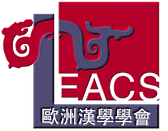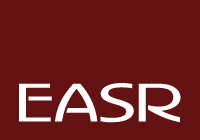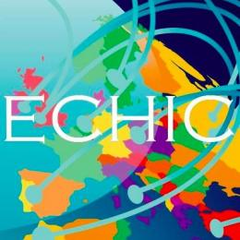List of members

DARIAH – Digital Research Infrastructure for the Arts and the Humanities
The Digital Research Infrastructure for the Arts and Humanities (DARIAH) aims to enhance and support digitally-enabled research and teaching across the arts and humanities. DARIAH is a network of people, expertise, information, knowledge, content, methods, tools and technologies from its member countries.
It develops, maintains and operates an infrastructure in support of ICT-based research practices and sustains researchers in using them to build, analyse and interpret digital resources. By working with communities of practice, DARIAH brings together individual state-of-the-art digital arts and humanities activities and scales their results to a European level. It preserves, provides access to and disseminates research that stems from these collaborations and ensures that best practices, methodological and technical standards are followed.
DARIAH was established as a European Research Infrastructure Consortium (ERIC) in August 2014. Currently, DARIAH has 19 Members and several cooperating partners in eight non-member countries.
Contact info
Directors: Agiatis Benardou, Sally Chambers, Toma Tasovac
Eliza Papaki
Outreach and Communications Officer

EACS – European Association for Chinese Studies
The European Association for Chinese Studies (EACS) is an international organisation representing China scholars from all over Europe. Currently it has more than 700 members. It was founded in 1975 and is registered in Paris. It is a non-profit organisation not engaging in any political activity.
The purpose of the Association is to promote and foster, by every possible means, scholarly activities related to Chinese Studies in Europe. The EACS serves not only as the scholarly representative of Chinese Studies in Europe but also as contact organisation for academic matters in this field.
One of the Association’s major activities are the bi-annual conferences hosted by various centres of Chinese Studies in different European countries. The papers presented at these conferences comprise all fields from traditional Sinology to studies of modern China. In addition, summer schools and workshops are organised under the auspices of the EACS. The Association carries out scholarly projects on an irregular basis.
Contact info
Laura De Giorgi
Professor in History of Modern and Contemporary China
Department of Asian and North African Studies
Ca’ Foscari University of Venice

EADH – European Association for Digital Humanities
The EADH brings together and represents the Digital Humanities in Europe across the entire spectrum of disciplines that research, develop, and apply digital humanities methods and technology. The EADH also supports the formation of DH interest groups in Europe that are defined by region, language, methodological focus or other criteria.
The European Association for Digital Humanities (EADH) was founded in 1973 under the name Association for Literary and Linguistic Computing (ALLC) with the original purpose of supporting the application of computing in the study of language and literature.
As the range of available and relevant computing techniques in the humanities increased, the interests of the association's members have broadened substantially and encompass not only text analysis and language corpora, but also history, art history, music, manuscript studies, image processing and electronic editions. The association's new name, which was adopted in 2012, reflects this significant widening of scope. Today the EADH's mission is to represent European Digital Humanities across all disciplines.
Contact info
Merisa Martinez
Executive committee member
EADI – European Association of Development Research and Training Institutes
EADI, the European Association of Development Research and Training Institutes, is the leading European network in the field of Development Studies: With more than 100 institutional members in more than 25 countries it.organises activities and provides platforms for international networking and exchange with a strong interdisciplinary focus. EADI’s flagship events are the General Conferences every three years which bring together the wider Development Research community around a specific topic. The official languages of EADI are English and French.
EADI’s Mission
EADI is the prime professional association for development studies. As such it promotes:
EADI’s Objectives
To generate and stimulate and exchange of information among European academics and researchers concerned with development issues To promote interdisciplinary studies on specific themes To develop contacts with researchers from other regions of the worldContact info
Susanne von Itter
Executive Director
European Association of Development
Research and Training Institutes (EADI)

EASA – European Association of Social Anthropologists
European Association of Social Anthropologists / Association Européenne des Anthropologues Sociaux (EASA) is a professional association open to all social anthropologists either qualified in, or else working in, Europe.
The Association seeks to advance anthropology in Europe by organizing biennial conferences.
EASA's academic journal, Social Anthropology/Anthropologie Sociale appears four times a year.
EASA is member of the World Council of Anthropological Associations (WCAA).
Contact info
Alessandra Oanca

EASR – European Association for the Study of Religion
The European Association of the Study of Religions promotes the academic study of religions through the international collaboration of scholars in Europe whose research has a bearing on the subject.
The objective of the EASR is pursued by the usual means of scholarly activity such as the arrangement of conferences, symposia or colloquia, the encouragement of scholarly publications, the exchange of information through electronic or other means, and other activities.
Contact info
Kim Knott, President

ECHIC – European Consortium for Humanities Institutes and Centres
The European Consortium for Humanities Institutes and Centres is a university-based initiative to organise European Research Institutes, Humanities Faculties and Centres for the Humanities.
The profile of the humanities in Europe today has become a contested space that is often the focus of polemical debates but seldom the object of rigorous scientific discussions. This consortium rests on the double assumption that effective international and intra-European networking in defence of the humanities, on the one hand, and interdisciplinary research across the field of the humanities, on the other, can play a significant role in shaping this debate about the humanities today and offer workable alternatives to the renewal of the field. The consortium pursues the highest international standards of excellence with a spirit of innovation and exploration of new research areas, but also with an acute sense of the social and political relevance of the humanities in Europe today.
Contact info
President: Silvana Colella
Universita' di Macerata
Dipartimento di Studi Umanistici - Lingue, Mediazione, Storia, Lettere, Filosofia
via Giovanni Mario Crescimbeni, 28, 62100 Macerata
T.+39 0733 258 4062

ECPSA – The European Confederation of Political Science Associations
In November 2007 the European Confederation of Political Science Associations (ECPSA) was founded in Berlin, Germany. It is currently a union of twenty-three national and international associations of political science in Europe.
ECPSA promotes the discipline of political science throughout Europe. As the European higher education landscape is increasingly harmonised, there is need for an organisation to promote the discipline’s interests and pursue its professional goals. The Confederation seeks to make political science more meaningful in public debate and policy-making. It facilitates collaboration between political science associations with the aim of improving services and benefits to the members of each. ECPSA has as its main functions to:
1- provide political science associations in Europe with a forum for the deliberation of common issues (such as teaching, curricula, research and resourcing, etc.) and a framework for cooperation;
2- represent political science as a discipline to the general public, policy-makers and the media;
3- facilitate the mobility of academics and students across Europe;
4- share information on the Bologna process and other developments of the higher education landscape in Europe and enhance the interests of political science in those processes;
5- support democratic political / civic education;
6- contribute to the development of methods and standards of quality assurance and accreditation;
7- ensure that decision-makers consider the discipline’s interests in regard to issues of doctoral training, employment qualifications and professional standing, both nationally and across Europe;
8- disseminate best practice in the management and organisation of academic and professional associations;
9- develop relations with other political science groups, associations and with cognate disciplines.
Contact info
Didier Georgakakis
Member of the Board
Contact: Beatriz Camacho
University of Valencia
Facultad de Derecho/Law School
Avda. Los Naranjos, s.n. Valencia, 46022 (Spain)

ECREA – European Communication Research and Education Association
ECREA is a learned society of communication scholars devoted to the development of communication research and higher education in Europe.
ECREA is organised into:
25 thematic sections, each developing a distincative field of communication studies, 5 Temporary Working Groups which focus on emerging or underrepresented fields within media and communication studies, and 3 permanent Networks representing specific socio-demographic categories of scholars.Driven by the volunteer work of over one hundred Section, Temporary Working Group and Network Chairs and Vice-Chairs, and eleven-member Executive Board, ECREA is an association with a strong bottom-up organisational culture. This means that many projects and ideas are born from the creative energy and enthusiasm of our members.
Contact info
Pille Pruulmann-Vengerfeldt
ECREA President

EERA – European Educational Research Association
The aim of the European Educational Research Association (EERA) is to further high quality educational research for the benefit of education and society. High quality research not only acknowledges its own context but also recognises wider, transnational contexts with their social, cultural and political similarities and differences. The association’s activities, such as the annual conference, season schools for emerging researchers and publishing, build on and promote free and open dialogue and critical discussion and take a comprehensive and interdisciplinary approach to theory, methods and research ethics.
EERA is an association of educational research associations. Every national, regional or supra-regional corporation engaged in general educational research may become a member, as long as they are domiciled in Europe.
Contact info
Daniela Preis
EERA Office
Marit Honerød Hoveid
President